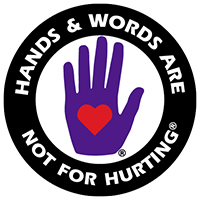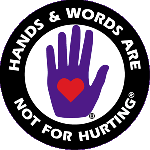In May of 2009 fifteen students and two faculty members from Johns Hopkins University School of Nursing traveled to St. Croix, U.S. Virgin Islands for their public health rotation. While the students participated in many public health activities, much of their time was spent preparing for and leading The Hands Project in two of the middle schools on the island, Elena Christian and Arthur Richards. The timing of the Purple Hands Project in St. Croix could not have been better. Days before Hopkins students were to lead the project, Nefertiti O’Bryan, a teacher and girls basketball coach at Elena Christian Jr. High School, was murdered by her partner. Prior to the incident, contacts at the school agreed to allow Hopkins students to lead The Hands Project, but they did not think that it would be sustainable. Additionally, the nurse at Arthur Richard’s Jr. High School said that talking about violence and participating in The Hands Project was “not her job.” It is possible that this incident led both students and staff members to be more open to talking about domestic violence, thus making The Hands Project a huge success.
Although The Hands Project was led differently in each of the two schools due to the number of participants, both projects were well received by participants and staff. One group of Hopkins students presented to 100 students in a classroom format at the Arthur Richards and another group presented to 400 students in an assembly format at Elena Christian. In each of the presentations, Hopkins students introduced themselves and the purpose of the presentation, asked students questions about definitions of violence, asked them to give an example of a current violent event on the island, asked them to raise their hands to a series of questions about who in the class had experienced any form of violence, performed a skit, held discussion groups, and signed the Purple Hands Pledge®. By the end of the presentations at both schools, staff and students were beginning to think differently. Staff members at each of the schools who previously did not want to participate or thought that the program was not sustainable had changed their minds. Additionally, the majority of the students participated in discussions about violence and signed the Purple Hands Pledge®.

